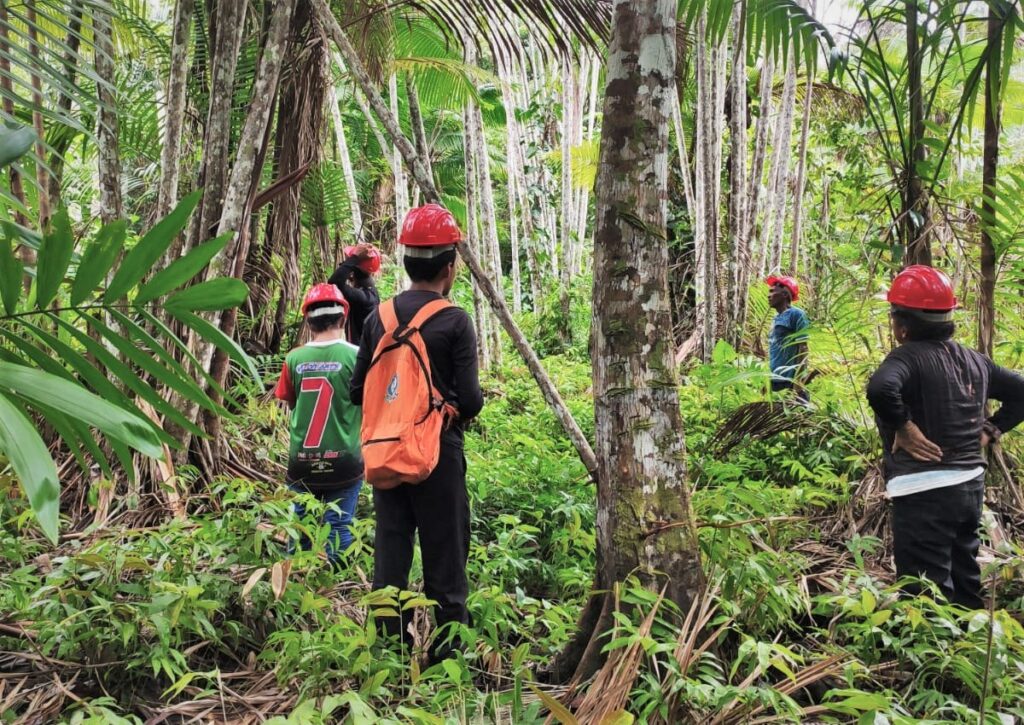New phase of the Interelos Socioeconomic Program focuses on açaí regions for the development of community management
A new phase of sustainable development is taking shape in the Forever Green Extractive Reserve, which covers 82% in the territory of Porto de Moz, in Pará. Interelos Institute, a program is underway with the objective of mapping açaí regions in the region, aiming to create better opportunities for the community, in addition to preserving the environment.
Bounded by the Xingu and Amazon rivers, the reserve is home to 37 communities and around 13,000 inhabitants and is a vital ecosystem for the northern region of Brazil, offering a wide range of livelihoods for its residents, ranging from logging to fishing and animal husbandry.
O Interelos Socioeconomics Program at Resex Verde Para Semper has been working to strengthen value chains in the region, providing technical support for the sustainable management of natural resources, access to public policies, strengthening communities and land regularization.
In charge of mapping the açaí regions within the reserve, Jéssica Silva, a forestry engineer who lives in Belém, Pará, lends her previous experience in the region of the Marajó archipelago, from the project manage, for a program that aims to train community leaders and local agents in management practices and sustainable production of native açaí.
Among the greatest challenges encountered in carrying out this work are the logistical and technological difficulties to reach the seven communities popularly covered: Samaúma, Cuieras, Apepó, Apeí, Írapi, Ilha Grande and Batata. Despite previous knowledge about the practice of açaí management, the lack of data and information makes it difficult to measure the productivity of the areas and, consequently, the diagnosis of the real productive potential of the communities' açai groves. Therefore, the survey initiated by the Interelos Institute with the support of the Sustainable Development Committee of Porto de Moz (CDS) is of fundamental importance for the region.
In addition to the survey on the productive potential of the açai groves, the communities also receive information on the practice of minimal impact management for native açai groves and training in geotechnology of mapping the açai groves, a way of contributing with information and helping to balance the production of açaí and the maintenance of the ecosystem's biodiversity.
Jessica tells us that the communities that have developed the most in the region in recent years are those that have a well-defined community management plan. But most communities still yearn for projects that improve not only their financial situation, but the infrastructure of the reserve as a whole, promoting access to food, clean water and internet.
The feeling of the cooperative members, however, is one of hope: “After explaining the entire project, they are excited about the possibility of carrying out a forest inventory in their açai groves, confident that açaí production in the territory will develop. This time, their look is hopeful, because on previous occasions many projects have started and not finished.”
Subscribe to our Newsletter and receive our articles and releases first hand. Click here!

Training and listening to cooperative members is the continuation of a study on the chains with the greatest economic and environmental development potential at Resex Verde Para Semper, part of a program carried out by the Interelos Institute that started in 2021. With the choice of community members to prioritize development of the açaí and fish chains, organizational, financial, technological and communication needs were identified.
This initiative is based on the conviction that the development of productive chains must happen together with uninterrupted investments in education, the only way to achieve long-term community development. Resex Verde Para Semper offers a typical scenario of the Amazon region: it has the potential for prosperity to be explored, but coexists with immense challenges that prevent and postpone the improvement of the quality of life of its inhabitants. By exploring the viability of the açaí chain, the Interelos Institute seeks to take advantage of the growing market, the abundant raw materials, the favorable environment for sustainable practices, the strategic location, the presence of experienced social actors, management technologies and community interest to bring sustainable economic growth to the region.
